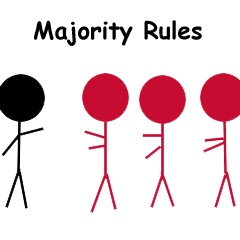 2016 brought with it many developments in the crowdfunding industry, most notably the introduction of the long-awaited Title III crowdfunding rules. While admittedly not all crowdfunding legislation passed this year was as influential, there have been significant strides made to improve existing securities regulations and to continue prying open the doors of capital and investment. There is still much more to be done however, and 2017 brings the potential for vast improvement. Here are some of the things I am hoping to see come to light in 2017.
2016 brought with it many developments in the crowdfunding industry, most notably the introduction of the long-awaited Title III crowdfunding rules. While admittedly not all crowdfunding legislation passed this year was as influential, there have been significant strides made to improve existing securities regulations and to continue prying open the doors of capital and investment. There is still much more to be done however, and 2017 brings the potential for vast improvement. Here are some of the things I am hoping to see come to light in 2017.
A Seat At The Table.
In late 2015, the SEC Small Business Advocate Act (H.R. 3784) was introduced by Reps. John Carney and Sean Duffy, for the purposes of establishing an “Office of the Advocate for Small Business Capital Formation,” and a “Small Business Capital Formation Advisory Committee,” within the Securities and Exchange Commission (SEC). In layman’s terms, this bill will establish a permanent office (and committee) within the SEC, whose primary purpose will be to advocate for the interests of small and medium-sized enterprises (SMEs). This would be a HUGE step forward for the crowdfunding industry and for SMEs.
Short of scattered industry chatter most of us, even us industry professionals, know little of the policy discussions that actually go on behind closed SEC doors. More importantly, we currently have no real voice in that process. Sure there are ways to get our opinions and suggestion to the SEC such as joining advocacy groups like CFIRA, attending the annual Small Business Forum put on by the SEC, or submitting comment letters, but half the time it feels like those recommendations fall on deaf ears. Take the recent Rule 147 amendments for example, which is a matter of personal importance to me. Scores of letters were submitted to the SEC (including even one sent from a bi-partisan congressional group) advocating to keep the proposed amendments under the current Rule 147 safe harbor rather than create a new rule which would require each state to  amend their existing crowdfunding statutes. When it came time to present the final amendments however, those letters seem to have been completely ignored. Now if one of our own was behind those doors and able to advocate for positions like this it would have been much harder for the SEC to ignore such a voice.
amend their existing crowdfunding statutes. When it came time to present the final amendments however, those letters seem to have been completely ignored. Now if one of our own was behind those doors and able to advocate for positions like this it would have been much harder for the SEC to ignore such a voice.
In writing this post I had planned to devote a section to further advocating for the passing of this bill like so many of my colleagues. However, I am ecstatic to report that H.R. 3784 was passed by the Senate earlier this month and has recently been signed into law by the President. It is going to be really exciting to see who gets appointed to the new positions and just what their new roles will be. Whoever they are and whatever their formal duties are I believe these new advocates will prove to be invaluable to both SMEs and the entire crowdfunding industry.
A New SEC.
For those that don’t know, the SEC is supposed to have 5 total Commissioners each of which is appointed by the President with the advice and consent of the Senate. The President also designates the Chair of the SEC. We currently only have 3 Commissioners (Mary Jo White, Kara Stein, and Michael Piwowar) and Commissioner and SEC Chair Mary Jo White has announced her intention to step down at the end of President Obama’s administration. This sets the stage for the creation of a completely new SEC.
Whether or not you agree with the upcoming Trump presidency, it’s clear that Trump is inevitably going to have a significant impact on the make-up and direction of the SEC. As President, Trump will have the ability to both appoint persons to the 3 open SEC seats (representing the new majority) and to designate the new SEC Chair. President-elect Trump’s transition team has continually touted a new era of pro-business initiatives and limited government regulation, so it is a safe assumption that his new appointees will carry similar views. Couple that with the fact that no President may simply remove a seated Commissioner and the new, pro-business, Trump majority will define the tone and direction of the SEC for at least the next years. Take for example, President-elect Trump’s promise to “dismantle the Dodd-Frank Act and replace it with new policies to encourage economic growth and job creation.” Even if complete repeal might never occur, the ability to appoint the majority and Chair of the SEC will clearly impact the SEC’s interpretation of existing rules and regulations under Dodd-Frank as well as the SEC’s adoption of remaining rules still required to be created under the Act (including potentially halting or delaying their adoption all together).
limited government regulation, so it is a safe assumption that his new appointees will carry similar views. Couple that with the fact that no President may simply remove a seated Commissioner and the new, pro-business, Trump majority will define the tone and direction of the SEC for at least the next years. Take for example, President-elect Trump’s promise to “dismantle the Dodd-Frank Act and replace it with new policies to encourage economic growth and job creation.” Even if complete repeal might never occur, the ability to appoint the majority and Chair of the SEC will clearly impact the SEC’s interpretation of existing rules and regulations under Dodd-Frank as well as the SEC’s adoption of remaining rules still required to be created under the Act (including potentially halting or delaying their adoption all together).
While Michael Piwowar is expected to be appointed as interim Chair when Mary Jo White steps down, it is widely anticipated that Paul Atkins will be President-elect Trump’s formal pick for SEC Chair. Atkins previously served as SEC chair from July 2002 until August 2008 and, both during and after his tenure, has been outspoken in his criticisms of many current securities regulations (including the Dodd-Frank Act). Like President-elect Trump, Atkins has advocated for less governmental regulation and more pro-business  initiatives. More importantly for the crowdfunding industry, Atkins is pro SME, having been quoted as saying: “small businesses are vital to our nation’s economy .. Put simply, if we are serious about spurring strong and lasting economic growth, creating more jobs outside of Washington, D.C., and breaking down our two-tiered economy, we do not need higher taxes or more government spending – instead, the data suggest that we need more entrepreneurs and more small businesses, and we need to continue to create a sensible regulatory environment in which these firms and individuals can succeed.” While just who will be selected to fill the other two open SEC seats is anyone’s guess, but more than likely they will share similar views to Atkins when it comes to financial regulation and SEC reform.
initiatives. More importantly for the crowdfunding industry, Atkins is pro SME, having been quoted as saying: “small businesses are vital to our nation’s economy .. Put simply, if we are serious about spurring strong and lasting economic growth, creating more jobs outside of Washington, D.C., and breaking down our two-tiered economy, we do not need higher taxes or more government spending – instead, the data suggest that we need more entrepreneurs and more small businesses, and we need to continue to create a sensible regulatory environment in which these firms and individuals can succeed.” While just who will be selected to fill the other two open SEC seats is anyone’s guess, but more than likely they will share similar views to Atkins when it comes to financial regulation and SEC reform.
Again regardless of your opinion as to the President-elect or the Dodd Frank Act, the crowdfunding industry (and the SEC in general) would clearly benefit from a more pro-business, less authoritarian, approach. While I commend Chair Mary Jo White and the rest of the SEC for getting us to this point, few would argue that the SEC’s approach toward crowdfunding and fin-tech to date has been pro-business and that type of thinking is what we need to move the industry to the next level. We really need some fresh blood and a new direction when it comes to the SEC and I am excited to see how this will play out in 2017.
New Accredited Investors.
As many of you know most offerings today (even with the introduction of Title III) are open only to individuals/entities that qualify as “accredited investors.” The problem is that the standards for qualifying as an “accredited investor” have remained relatively unchanged since the 1980s. This leaves the majority of today’s private investment opportunities open only to high net worth individuals/entities.
Under Section 413(b)(2)(A) of the Dodd-Frank Act requires the SEC to re-examine the definition of “accredited investor” every four (4) years to determine whether it should be modified. While the SEC actually did conduct a review of the current definition (in 2016 of course, 2 years after it was required to under the Dodd-Frank Act) no formal decision was ever made by the SEC as to whether the definition would be revised. Needless to say, this has been a heated topic of debate. Since 2014 there have been countless articles  written to induce the SEC to substantively revise and expand the current “accredited investor” definition. I have written several such articles myself but, for the first time, I am actually glad the SEC has actually failed to make a decision on the issue. Now that might sound a bit counter intuitive but follow me for a minute.
written to induce the SEC to substantively revise and expand the current “accredited investor” definition. I have written several such articles myself but, for the first time, I am actually glad the SEC has actually failed to make a decision on the issue. Now that might sound a bit counter intuitive but follow me for a minute.
Even if the current SEC had actually made some revisions to the “accredited investor” definition, under the current conservative and authoritative SEC regime the expansion of the definition (if any) would have be minimal at best. Moreover, under the Dodd-Frank Act the SEC would then have had to wait until 2018 to review the definition again (without further additional Congressional authorization of course). By failing to act the current SEC has actually left the issue open for the new, incoming, pro-business SEC majority to decide. Assuming the new SEC takes up the issue, which seems a distinct possibility, I believe the resulting changes will be far more progressive then those we would have gotten under the current Commission. As a result the current SEC actually did SMEs and all of us a favor by not acting. Picture waiting on a crowded train platform and cursing the trains for being full as they pass only to finally get on a wide open train where you can sit and relax all the way to work. A shiny new SEC train is pulling into the station and I believe a lot of new accredited investors are finally going to get a seat.
Correcting The Sins Of The Past.
Other than the new positions created by the recently approved Small Business Advocate Act, much of the above is speculative and more of a wish list than a certainty. That being said, it should be noted that there are still several material bills which were introduced during 2016 that will hopefully be passed in 2017. These include:
- The Small Business Capital Formation Enhancement Act (H.R. 4168). This bill, introduced by Reps. Bruce Poliquin and Juan Vargas, would formally require the SEC to respond to any findings and recommendations put forth by the Securities and Exchange Commission’s (SEC) annual Small Business Forum. While the Small Business Forum is an annual event, the SEC is not currently required to even acknowledge the recommendations of the attendees. Have participated in several of these forums I can tell you from firsthand experience that a lot of good ideas come out of them and tasking the SEC with formally taking note of such ideas will be of serious benefit.
- The Supporting America’s Innovators Act (H.R. 4854). This bill, introduced by Rep. Patrick McHenry, would amend an exemption from registration under the Investment Company Act of 1940 increases the number of investors allowed for qualifying venture capital funds. This is important because not only will it help ease the use of “single purpose vehicles” (SPVs) for aggregating investor funds in offerings, but it will also ease the way for the creation of newer fund vehicles (e.g. newer micro-funds).
- The Fix Crowdfunding Act (H.R. 4855). This bill, introduced by Rep. Patrick McHenry, was originally a much more aggressive attempt to fix a number of the shortcomings under the current Title III rules. While it has since been watered down, in its current form the bill would update the Title III rules to allow for the use of SPVs for aggregating investor funds and would expand certain reporting exemptions for Title III issuers. As these are still material issues this bill will ease some of the current administrative burdens associated with using Title III.
- The Fair Investment Opportunities for Professional Experts Act (H.R. 2187). This bill, introduced by Rep. David Schweikert, would amend the definition of “accredited investor” to include investors who have securities related licenses or whom the SEC (through FINRA) determines has the requisition knowledge or experience. While I think the language itself needs some work, ANY expansion of the current definition of “accredited investor” would be extremely beneficial.
 Conclusion.
Conclusion.
No one knows what is going to happen under President-elect Trump’s tenure, least of all me. However, if the new appointees to the SEC turn out to be as pro-business and progressive as promised, I believe we are in for some substantive changes. Changes which will benefit SMEs, investors and the economy significantly.
